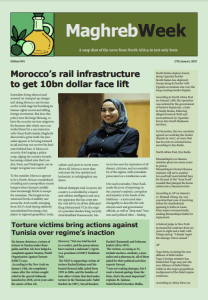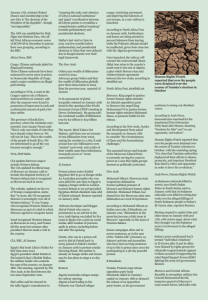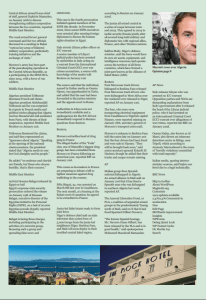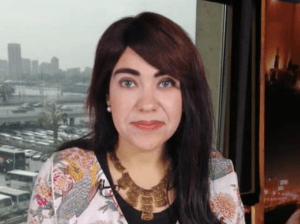Dr. Nadia Helmy: China is capitalising on Iran-Egypt relations
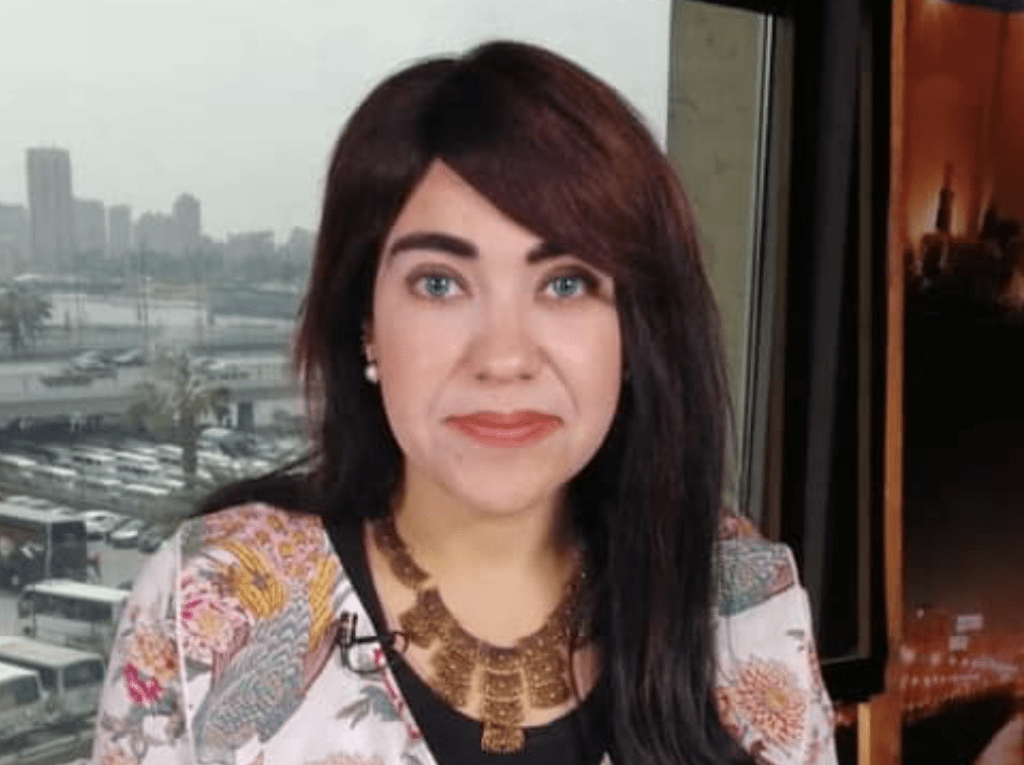
China is counting heavily on Iranian Foreign Minister Abbas Araghchi’s visit to Cairo. Beijing opposes the expansion of the conflict in the Middle East in order to preserve its interests and facilitate maritime traffic through the Suez Canal. Here, the equation of Egypt, Iran, China, and Russia can be included within the scope of Egyptian relations with the East, fulfilling China’s and its president’s dream of establishing a multipolar international world and engaging in dialogue among the developing countries of the Global South and South-South dialogue under the auspices and support of China, the largest developing country in the world. The Chinese-Iranian desire to strengthen and consolidate the Sino-Russian-Iranian bloc and include other allies is growing in order to confront the Western bloc and further fortify this bloc, which opposes the policies and dictates of the United States globally. The four countries (Egypt, China, Russia, and Iran) share a vision for establishing a multipolar international system that would strip the United States of its sole hegemony over the international system. Relations between Egypt and Iran have generally been strained in recent decades, but the two countries have intensified high-level diplomatic contacts since the outbreak of the Gaza crisis in October 2023, in which Egypt attempted to play a mediating role.
The deteriorating Sino-American relations reflect the importance of Beijing’s assistance to its regional ally, Iran, in breaking out of its isolation and rebuilding its economy, which clearly conflicts with Israel’s goals. Furthermore, the growing scope of military, technological, and intelligence cooperation between China and Iran exacerbates the military threat to Israel and other countries in the Middle East and the Indo-Pacific region. In the same context, Iran realizes that China needs its support for China’s transnational Belt and Road Initiative and Iran’s ability to protect the Chinese project in the region by imposing armed Shiite militias, Hezbollah, and its allied Houthi militias in the Middle East. China also recognizes that Iran is part of its strategic energy security project, in addition to its important geopolitical and security position for Beijing in dealing with security threats in Central Asia, Afghanistan, and the Shanghai Treaty States area. However, China’s position toward Middle Eastern powers is no longer based solely on Iran. There are other powers with which it can engage to ensure the security and safety of international shipping lanes and trade, most notably Egypt.
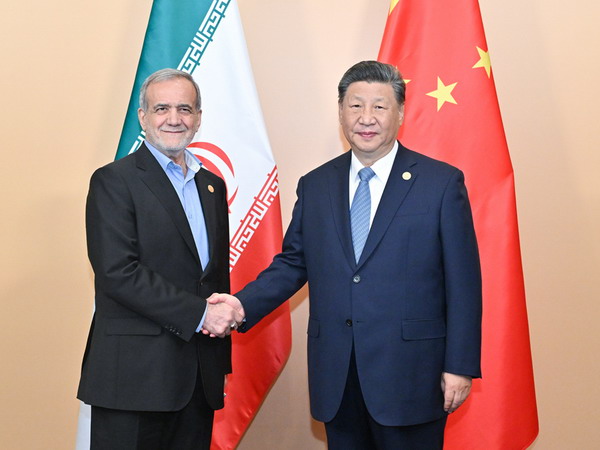
To this end, Beijing has pushed Iran to coordinate its positions with Cairo, in addition to the upcoming visit of Chinese President “Xi Jinping” to Cairo. This is part of a larger Beijing strategy to protect its interests in the Middle East, particularly trade flows, maritime transport and logistics through the Egyptian Suez Canal, and the safety of maritime transport operations and maritime straits. China has emphasized the need to halt the escalation in the Gaza Strip and by the Iran-backed Houthis to prevent a slide into a comprehensive regional war that would have serious repercussions for China’s security and the capabilities of all countries and peoples in the region. To this end, Beijing is encouraging the ongoing negotiations between Iran and the United States in this context to maintain stability in the region. There is a joint Egyptian-Chinese agreement on the imperative of restoring normal shipping traffic in the Bab al-Mandab Strait and the Red Sea and restricting Iranian-backed Houthi attacks on ships transiting the Suez Canal to prevent the United States and Israel from using them as a pretext to escalate the fighting in the Gaza Strip and open new conflict fronts in the region. China and Iran share common interests. Both are interested in weakening the United States, reducing its role in the international system, and undermining its alliances regionally and internationally. Both China and Iran oppose any foreign interference in their internal affairs.
From my analytical perspective, I believe there is a connection between the timing of Rafael Grossi’s visit to Cairo and his meeting with President “El-Sisi” and Abbas Araghchi’s visit to Cairo at the same time. This is particularly true in light of the important tripartite meeting and discussions in Cairo between Egyptian Foreign Minister “Badr Abdel Aty,” his Iranian counterpart “Abbas Araghchi,” and “IAEA” Director General “Rafael Grossi.” Egypt has a direct interest in concluding an agreement on the Iranian nuclear issue. With the completion of this agreement, we will see a major breakthrough on important issues related to Red Sea security and the Palestinian issue. The mediation of Cairo and Egyptian President “Abdel Fattah El-Sisi” on the Iranian nuclear issue, as we understand it, reflects Egypt’s significant regional role in serving the region and the Gulf, especially after the issuance of the final statement of the Gulf-China summit in Riyadh in December 2022. Through the statement, Iran was invited to a comprehensive dialogue with the participation of regional countries to address the Iranian nuclear issue and cooperate with the “International Atomic Energy Agency” (IAEA) to move forward with the nuclear talks, which have stalled since August 2022.
“What unites Egypt and Iran at the present time is greater than what divides them”
Therefore, the Egyptian role complemented the Arab and Gulf dimensions in inviting “IAEA” Director General “Rafael Grossi” to Cairo through a joint Egyptian-Iranian tripartite negotiation session attended by “Grossi.” This reflects Egypt’s current importance in promoting stability in the region and resolving any conflicts between its parties. There is a shared interest between Egypt and Iran, along with China and Russia, in thwarting the impact of US sanctions on Iran, given their negative repercussions for the region. They also share a desire to limit the United States’ ability to use sanctions against Iran. In this context, China and Russia, by including Egypt, Iran, and several other countries in the BRICS grouping, are seeking to take further measures to promote financial exchanges using local currencies, away from the dominance of the US dollar. This has been officially announced by the Egyptian and Iranian central banks, which will facilitate financial transactions using the Chinese local currency (Yuan or Renminbi), thus limiting the dollar’s dominance over the economies of both countries.
This also represents a direct affirmation by Cairo of its support for the nuclear non-proliferation and disarmament regime in the region, which contributes to strengthening regional peace and security, in addition to maximizing the benefits of the peaceful uses of nuclear energy. To emphasize that Egypt is at the forefront of countries supporting the disarmament and non-proliferation regime, given its goal of achieving a nuclear-weapon-free zone, Egypt is constantly calling for the establishment of a nuclear-weapon-free zone in the Middle East. It also seeks to strengthen the role of the International Atomic Energy Agency in supporting efforts to achieve the universality of the Non-Proliferation Treaty in the region and a nuclear-weapon-free Middle East.
READ: Malema “Kill the Boer” chant is a cry for change
Furthermore, what unites Egypt and Iran at the present time is greater than what divides them. Both are targeted differently by Israel, and ultimately, the harm to both parties is almost identical. This is represented by an attempt to remove them from the balance of power that is intended to prevail in the region and the expansion of the roles of some previously limited powers in order to reshape the region, which is difficult to achieve unless traditional powers are excluded from the new equation. Here, Cairo and Tehran are aware of the repercussions of this matter, and what compels them to search for a formula to reach understandings between them is a matter encouraged by China. On the Iranian side, Tehran hopes that Foreign Minister Abbas Araghchi’s visit to Cairo will help relieve the burden of sanctions on its economy and mitigate their repercussions, which have fueled internal discontent within Iran itself. This will be achieved through economic and commercial gains and significant economic and political benefits in the short and long term through its rapprochement with Cairo, given its significant regional and international influence.
The views expressed in this article belong to the author and do not necessarily reflect the editorial policy of Maghrebi.org. Dr. Nadia Helmy is Associate Professor of Political Science, Faculty of Politics and Economics / Beni Suef University- Egypt. She is an Expert in Chinese Politics, Sino-Israeli relationships, and Asian affairs- Visiting Senior Researcher at the Centre for Middle Eastern Studies (CMES)/ Lund University, Sweden- Director of the South and East Asia Studies Unit.
If you wish to pitch an opinion piece please send your article to alisa.butterwick@maghrebi.org.
Want to chase the pulse of North Africa?
Subscribe to receive our FREE weekly PDF magazine
